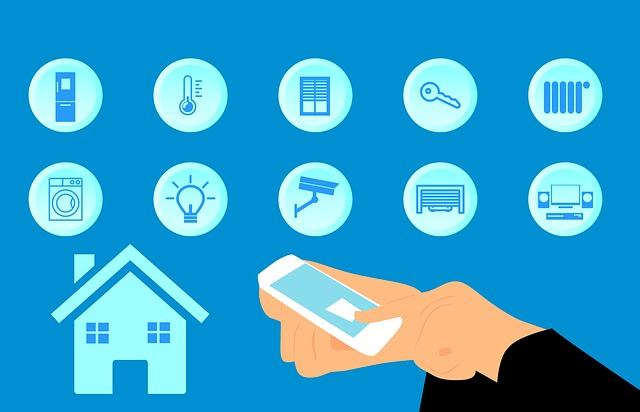Discover the Latest Technology in Real Estate: Trends, Insights, and Innovations
Are you ready to explore the thrilling world of technology in real estate? The real estate industry is witnessing a digital revolution, with technology shaping the way we buy, sell, and manage properties. In this blog post, we’ll take you on a fascinating journey through the latest technology in real estate trends, insights, and innovations. Fasten your seatbelts as we dive into the world of virtual reality, artificial intelligence, and the Internet of Things, reshaping the real estate landscape!
From streamlining property transactions to automating property management and enhancing customer experiences. Technology in real estate is leaving no stone unturned. Read on to discover how these cutting-edge technologies are transforming the industry and how you can leverage them to stay ahead in the competitive real estate market.
Key Takeaways
Revolutionize your real estate business with the latest tech trends, insights and innovations!
Streamline property transactions with technology for faster, simpler & cost-effective results!
Enhance customer experience by utilizing AI, AR/VR and predictive analytics to stay ahead of the competition!
The Impact of Technology on the Real Estate Industry

Gone are the days when real estate transactions were bogged down by tedious paperwork and long waiting times. Today, the real estate industry is undergoing a digital transformation. Real estate technology trends are streamlining transactions, amplifying customer experiences, and revolutionizing property management processes. The main real estate tech trends excitingly include virtual reality (VR), amazing artificial intelligence (AI), and the incredible Internet of Things (IoT). So, what does this mean for the future of real estate?
As technology continues to advance at a rapid pace, real estate agents, property managers, and investors are increasingly embracing innovative tools. They are also finding solutions to stay competitive in the market. We will now examine the influence of technology on the real estate industry. Specifically its role in simplifying property transactions, enriching customer experiences, and automating property management procedures.
Streamlining Property Transactions
Visualize a scenario where property transactions become simplified, quicker, and more transparent. This precisely describes the benefits technology is adding to the real estate industry. With the help of property aggregation platforms, real estate agents can:
Access up-to-date listings from multiple sources
Offer virtual tours of properties
Use big data and analytics to gain exciting insights into customer behavior, market trends, and investment opportunities
These advancements enable agents to make informed decisions and provide a better experience for their clients.
PropTech startups are also shaking things up with innovative solutions that:
Reduce transaction time
Cut costs
Offer reduced brokerage commission (e.g. Rex Homes has reduced commission to 2%, compared to the industry average of 5-6%)
Remove the need for paperwork and enable electronic signing of documents
Undeniably, technology is reshaping the way we buy, sell, and lease properties, enhancing convenience and efficiency for everyone involved.
Enhancing Customer Experience
In the current dynamic world where customer experience takes center stage, the real estate industry is not left behind. With the help of technologies like AI, AR, and VR, real estate agents can offer personalized services, virtual tours, and data-driven insights to cater to the unique needs of their clients. For instance, agents can use datasets and predictive analytics to group customers based on lifestyle characteristics and create highly targeted messages and content.
The power of conversational AI cannot be understated either. By integrating AI-powered chatbots into their customer service strategy, real estate agents can provide 24/7 availability, fast response times, and a low error rate. These technological advancements are not only enhancing the customer experience but also allowing real estate professionals to stay ahead of the competition by offering superior, personalized services to property buyers and sellers.
Automating Property Management
Although property management can be laborious and time-intensive, technology now allows property managers to automate many of their daily tasks. This significantly eases their workload and boosts efficiency. Take property management software, for example; solutions such as:
These are revolutionizing the way property managers handle their tasks and responsibilities.
Building Management Systems (BMS) and Robotic Process Automation (RPA) are other examples of automation tools. These tools are changing the game in property management. With these technologies, property managers can monitor and control the physical environment of a building. This includes property metrics like temperature, humidity, lighting levels, air conditioning, and security systems.
As technology continues to advance, we can expect even more innovative tools and solutions to revolutionize property management processes.
Key Technologies Transforming Real Estate

In the current wave of technological progress, a handful of key technologies are spearheading the transformation of the real estate industry. These technologies include:
Artificial Intelligence (AI)
Augmented Reality (AR)
Virtual Reality (VR)
Internet of Things (IoT)
These technologies offer smart solutions, immersive experiences, and connected environments. As they become increasingly widespread and accessible, the real estate industry is set to witness even more significant changes and innovations.
In the subsequent sections, we will delve into each of these pivotal technologies in greater depth and discuss their role in molding the future of the real estate industry. From AI-powered property recommendations to virtual property tours and smart home systems, the possibilities are endless. The future seems more exciting than ever.
Artificial Intelligence (AI)
Artificial Intelligence (AI) is unquestionably bringing about a revolution in the real estate industry through various means. By leveraging AI, agents can optimize marketing campaigns, analyze data, and provide personalized services to their clients. This can gain an edge over their competitors. Rex Homes is utilizing AI algorithms for ad placement on different channels. This is based on metrics like target audience’s purchase history..
Apart from marketing, AI technology helps in analyzing data for the real estate market by making market analysis, price predictions, property searches, and property management more efficient and effective. AI-powered chatbots are also transforming customer service. This is done by providing instant responses, augmenting team collaboration, and increasing the number of clients companies can service.
With AI’s continuous evolution, we can anticipate even more revolutionary applications and innovations within the real estate sector.
Augmented Reality (AR) and Virtual Reality (VR)
The immersive capabilities of Augmented Reality (AR) and Virtual Reality (VR) technologies are truly game-changing for the real estate industry. By enabling virtual property tours, these technologies save time and resources for both buyers and agents. This eliminates the need for in-person visits. Moreover, experts predict that AR and VR will become a standard in the real estate industry by 2023. The adoption of these technologies will be even more crucial for staying competitive.
Companies like PIXO are leveraging VR technology in innovative ways, such as using VR training in construction to help learners acquire the same material 40-60% faster than in a traditional setting. With the ongoing advancement of AR and VR technologies, we can look forward to more intriguing applications and uses in the real estate sector, further enriching the customer experience and revolutionizing property buying, selling, and leasing.
Internet of Things (IoT)
The Internet of Things (IoT) is another key technology that’s making a significant impact on the real estate industry. IoT devices are transforming properties into smart homes, offering convenience, security, and energy efficiency to property owners and tenants alike. Some amazing examples of IoT devices used in smart homes include:
Door locks
Smart heating systems
Smart gardening devices
Video doorbells
Personal assistants like Google Home or Amazon Echo
As the demand for smart homes continues to grow, real estate professionals need to stay ahead of the curve by understanding and leveraging IoT technologies to offer properties that cater to the modern lifestyle. In doing so, they can attract tech-savvy buyers and renters who value the convenience and efficiency that smart homes provide, ultimately driving the real estate market towards a more connected and innovative future.
The Rise of PropTech Startups

PropTech, which stands for property technology, is an exciting subsector within the real estate industry that’s witnessing a rapid rise in startups and innovative solutions. These startups are emerging with innovative business models and disruptive practices, challenging traditional real estate methods and pushing the boundaries of what’s possible in the industry. As a result, real estate professionals need to keep an eye on these startups and embrace the innovations they bring to the table.
In the subsequent sections, we will scrutinize the innovative business models and disruptive practices put forward by these PropTech startups, and analyze their role in instigating change within the real estate industry. From subscription-based services to fractional property investment, these startups are redefining the way we buy, sell, and manage properties, offering new opportunities for growth and success in the market.
Innovative Business Models
PropTech startups are introducing new business models that challenge the status quo and offer fresh, innovative solutions for the real estate industry. One such example is subscription-based rental management solutions that provide property owners with a hassle-free way to manage their rental properties. Another exciting innovation is fractional property investment, which allows individuals or groups to invest in a property by purchasing a percentage of it, making property investment more accessible and affordable.
Crowdfunding platforms like:
Real estate assets are also part of this wave of innovation, allowing customers to raise small amounts of capital from multiple individuals to invest in real estate projects. These innovative business models are not only making real estate transactions more efficient and streamlined but also opening up new opportunities for investment and growth in the industry.
Disrupting Traditional Real Estate Practices
PropTech startups are not just introducing new business models, they’re also disrupting traditional real estate practices by offering digital solutions, automation, and data-driven insights. Companies like Opendoor and Compass are prime examples of startups that have radically disrupted traditional real estate practices by providing innovative solutions for property transactions, management, and investment.
Digital solutions offered by PropTech startups include:
Property search and transaction platforms
Big data and AI technologies
Virtual reality tools
Instant messengers and chatbots
Online estate agents
Smart home technology
Digital property management systems
By embracing these digital solutions and staying up-to-date with the latest innovations, real estate professionals can enhance their services, improve client satisfaction, and gain a competitive edge in the market, especially when working with or for real estate firms.
Technology Adoption by Real Estate Agents

To maintain competitiveness in the constantly changing real estate industry, agents must embrace the newest technologies and tools that can aid in optimizing their operations and enhancing client engagement. By leveraging the following technologies, real estate agents can not only enhance their services but also gain a competitive edge in the market:
Marketing automation tools
CRM systems
Virtual reality tours
Drone photography
Social media advertising
In the following segments, we will investigate how real estate agents are utilizing technology to solidify their online presence, generate leads, and enhance client engagement, and we will discuss the assortment of tools and systems that can assist them in reaching their objectives.
Marketing Automation Tools
Real estate agents are leveraging marketing automation tools to strengthen their online presence, generate leads, and improve client engagement with real estate listings. With the help of tools like:
Zillow Premier
Agents can track engagement metrics, segment their customer base, guide prospective buyers through the sales funnel, and craft personalized emails.
By automating routine tasks and simplifying lead tracking, marketing automation tools help agents sell more efficiently and effectively, streamlining their marketing efforts and enabling them to focus on what they do best: connecting buyers and sellers and closing deals.
Customer Relationship Management (CRM) Systems
Customer Relationship Management (CRM) systems are another essential tool for real estate agents in the real estate business, helping them manage customer interactions, track leads, and organize property data more efficiently. Specialized CRM platforms tailored to real estate processes, such as AscendixRE, Buildout CRM, or RealNex, allow agents to maintain a customer database, manage contracts, and keep tabs on the progress made with potential leads.
By providing agents with a centralized platform for managing their customer relationships, CRM systems enable them to offer more personalized services and stay on top of their sales pipeline. In today’s competitive real estate market, adopting CRM systems is crucial for agents who want to maximize their success and grow their business.
Learn more about the best real estate software for agents in our blog: https://www.quickcommissionadvance.com/blog/the-best-software-for-real-estate-agents-in-2023-38-unbeatable-picks/
The Future of Real Estate Technology

As observed, the real estate industry is experiencing a digital transition, with technology assuming a crucial role in its future direction. Looking ahead, we can expect even more groundbreaking innovations and advancements in the realm of real estate technology, such as:
The rise of smart cities
Sustainable development
Blockchain
Tokenization
These trends will take center stage in shaping the future of the real estate industry, impacting many real estate companies in the process.
In the subsequent sections, we will examine these intriguing trends in more detail and discuss how they are primed to reshape the real estate scenario in the years to come. From environmentally friendly practices and connected environments to secure and transparent property transactions, the future of real estate technology holds immense promise and potential.
Smart Cities and Sustainable Development
With the escalating urban populations and the increasing demand for sustainable living, the idea of smart cities and sustainable development is garnering more attention in the real estate sector. With a focus on environmentally friendly practices, energy efficiency, and improved quality of life, smart cities aim to create a more sustainable and livable future for their residents.
Green building technologies, smart home systems, and connected infrastructures are just a few examples of how technology is playing a crucial role in the development of smart cities and sustainable real estate practices. By embracing these trends and incorporating them into their projects, real estate professionals can contribute to a greener, more sustainable future for generations to come.
Blockchain and Tokenization
Another fascinating trend influencing the future of real estate technology is the emergence of blockchain and tokenization. Blockchain technology has the potential to revolutionize property transactions by providing a secure, transparent, and efficient way to record and transfer ownership of assets. By eliminating the need for intermediaries, such as banks or brokers, blockchain allows for direct peer-to-peer transactions, reducing the risk of fraud and increasing trust in the real estate industry.
Tokenization helps agents and brokers to gain access of properties otherwise inaccessible due to physical locations, lack of liquidity or incomplete data. It makes ownership of assets easier and efficient by eliminating multiple middle men in the transaction process. Platforms like Tokeny are at the forefront of this movement, offering real estate security tokens and cutting compliance and administrative costs by a staggering 90%. As blockchain and tokenization technologies continue to advance, we can expect even more innovative applications and use cases in the real estate sector, further streamlining property transactions and opening up new investment opportunities.
Summary
Throughout this blog post, we’ve explored the exciting world of real estate technology, delving into the key trends, insights, and innovations that are transforming the industry. From streamlining property transactions and enhancing customer experiences to automating property management and embracing innovative business models, technology is reshaping the way we buy, sell, and manage properties.
As we look to the future, the rise of smart cities, sustainable development, blockchain, and tokenization holds immense potential for further revolutionizing the real estate landscape. By embracing these technological advancements and staying ahead of the curve, real estate professionals can unlock new opportunities for growth and success in this ever-evolving market.
Frequently Asked Questions

What technology does a realtor use?
Realtors rely on a CRM (customer relationship management) tool to track their clients through the buying or selling process, record lead sources and effectively follow up with past clients. Wise Agent is an ideal choice for real estate agents looking for a specialized CRM.
What are the pros and cons of technology in real estate?
Technology has undeniable advantages for real estate, allowing you to expand your branding reach and communicate quickly. However, it also carries some risks, as the authenticity and accuracy of the messages you send may not be guaranteed.
How is technology disrupting the real estate industry?
Technology is revolutionizing the real estate industry by providing buyers and sellers with direct access to each other through online marketplaces and platforms, removing the need for a physical agent. This shift has given real estate investors more power and choice when it comes to their real estate transactions.
What are some examples of key technologies transforming the real estate industry?
AI, Big Data, VR and IoT are revolutionizing the real estate industry, bringing smarter ways to make deals, visualize properties and even automate home maintenance. Embrace the future and join this amazing technological revolution!
How can blockchain and tokenization technologies impact the future of real estate transactions?
Blockchain and tokenization technologies promise to revolutionize real estate transactions, offering increased security, transparency, efficiency, and new investment opportunities without the need for intermediaries.







